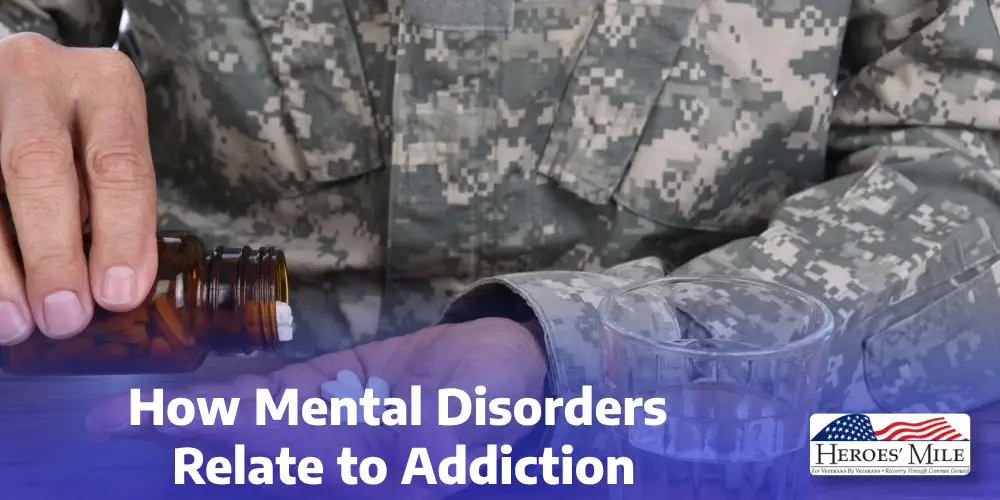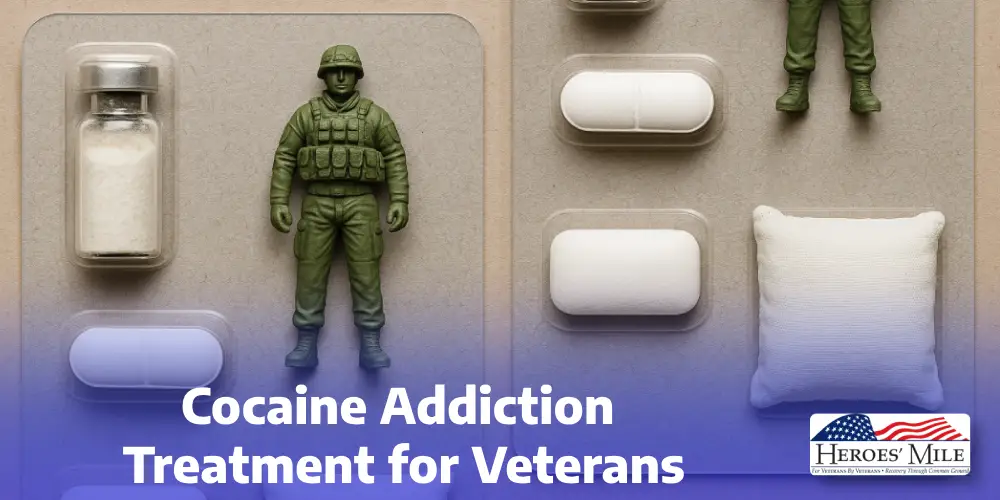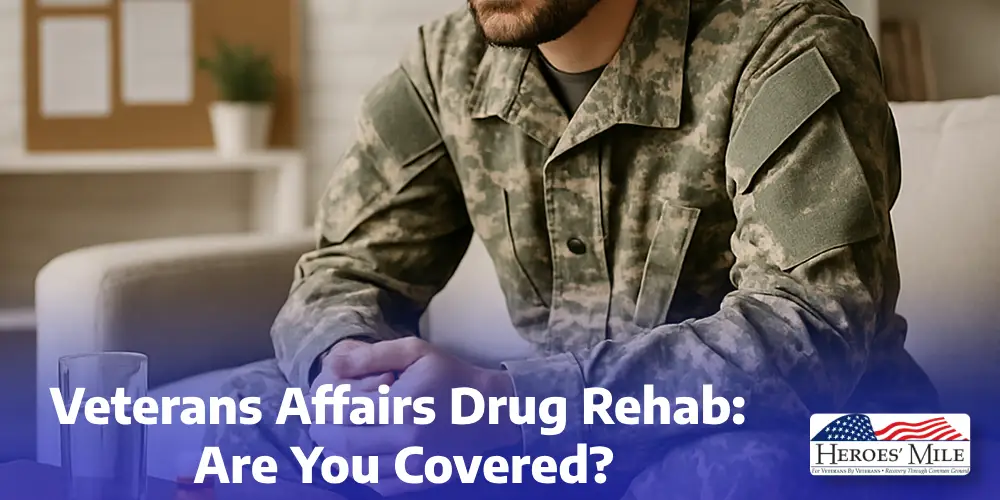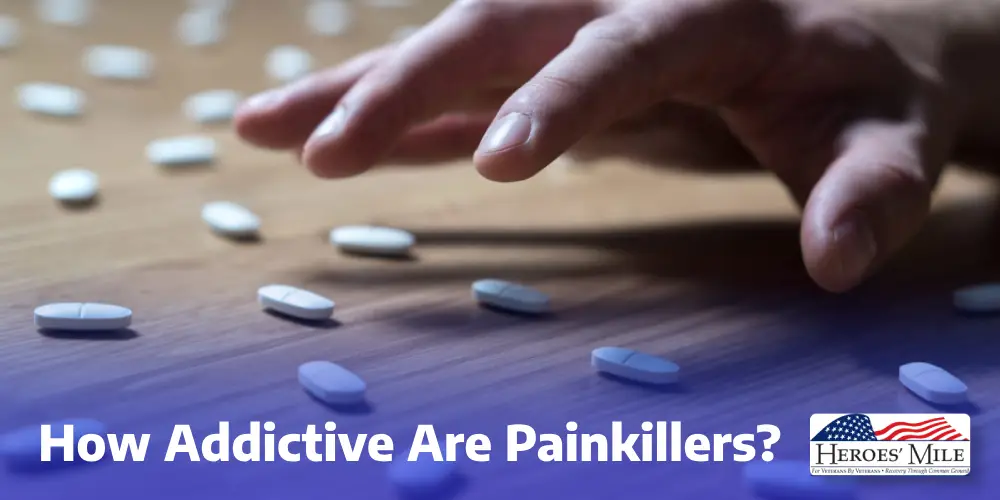The United States Military often depicts images of honor, dignity, and bravery. Many of those who join the military are following a desire to perform duties that benefit the greater good, indicating a character full of personal values and integrity.
But what happens when this high character is thrown off balance by actions necessary to handle military duties?
Military personnel are often put into positions where they must choose between doing their job as soldiers and protecting their personal character. It has long been recognized that war and wartime preparations cause stress to the military population that the general population rarely encounters. At times, this strain leads to mental anguish in the form of post-traumatic stress, depression, and moral injury.

Does Moral Injury Provoke Addiction Among Veterans?
What Is Moral Injury?
Moral injury is a relatively new term used to describe the damage to a person’s character as a result of actions (or lack of actions) that do not align with personal morals. These events result in trauma, which leads to lasting effects on a person’s mental health.
The negative mental effects experienced as a result of moral trauma include immense guilt, shame, and moral confusion. These deeply negative emotions often lead a person to self-medicate with drugs or alcohol, which can lead to issues with substance abuse or addiction.
Not every person that encounters moral trauma will experience injury, just as not every person returning from deployment will experience depression. However, this breach of morals occurs with some regularity in military service members, as well as in other people-facing professions (health care, law enforcement, etc.).
Moral Injury vs PTSD: What’s the Difference?
Moral injury and post-traumatic stress disorder (PTSD) share many of the same symptoms. Additionally, both moral injury and PTSD follow upsetting events thought to launch the mental distress associated with either condition.
Unlike moral injury, however, PTSD is a diagnosable mental disorder with defined treatment plans. In addition, PTSD is known for fear-based symptoms that are not always found in those with moral damage. Moral disorientation, on the other hand, is not a diagnosable mental illness but can contribute to other mental health disorders (including PTSD, depression, anxiety, etc.).
Moral disorientation and PTSD have commonly been connected to military veterans, but neither condition is unique to soldiers. Either ailment can happen to anyone who experiences the traumatic events that cause these lasting mental injuries.
How to Recognize Symptoms of Moral Injury
Professionally, moral injury is assessed through a questionnaire. Without using a questionnaire, you could observe many characteristics that mirror symptoms of PTSD in veterans. The notable difference is that moral injury is centered around moral dilemmas rather than reactions to fear.
For example, symptoms of moral injury among veterans include:
An Inability to Trust.
Similar to symptoms of PTSD, a person with moral distress has issues with trust. For example, they may question the people around them or even their own ability to make decisions.
Negative Emotions.
Guilt, shame, grief, and disgust are trademarks of moral disorientation. People may feel broken to their core due to the experience they went through. This leaves lasting feelings of despair.
Reliving the Trauma.
Again aligning with PTSD, people with moral injury are triggered by something that brings back memories of the trauma experienced. This exposes them to the situation again, which can cause significant distress.
Substance Abuse.
Many of those suffering from moral disorientation (or any mental disorder) turn to drugs or alcohol to help them cope with the emotional pain that they’re managing. Unfortunately, substance abuse often leads to addiction, which can intensify the negative feelings a person is experiencing.
How Mental Disorders Relate to Addiction

How Mental Disorders Relate to Addiction
Substance abuse and addiction are notable concerns among the veteran population. Not only do veterans have to navigate any emotional trauma experienced while employed in service but they also have to manage rejoining civilian society. This places them in jeopardy of developing mental health issues at a higher rate than the rest of the population.
In addition, barriers to mental health treatment are commonplace for the military population. The reasons for this are usually due to difficulty accessing treatment, stigma against receiving treatment, or the cost of veteran mental health treatment services.
Together, these stressors can lead to a desire to mentally escape by self-medicating with substances. This cycle can contribute to the isolation that many veterans feel when trying to fit back into civilian culture.
When substance abuse or addiction coincides with mental instability, the conditions are said to co-occur. The best rehab centers will treat these conditions together under a dual diagnosis. For example, dual diagnosis would treat the veteran experiencing both depression and alcohol addiction, assessing how one might be affecting the other and treating these issues in relation to each other.
Fortunately, quality addiction treatment facilities are prepared to address co-occurring disorders so that those affected experience the best outcome possible.
Video
Moral Injury on the Front Lines: Lessons From Healthcare, Alina Bennett – TED Talk
How do we make meaning out of suffering? This task has occupied human minds for millennia. Moral injury offers a new way to understand the consequences of betrayal resulting in the destruction of personhood. This talk assesses how the complexities of contemporary medical work, the rise of a patients-as-consumers orientation, and the lack of health literacy in the United States has created environments where moral injury can flourish among health workers and what treatment is needed to recover.
News Audio
Moral Injury Is The Signature Wound Of Todays Veterans – NPR
“I think that almost everyone who returns from war has suffered some kind of moral injury,” Wood tells Fresh Air’s Terry Gross. “And I do not mean by that that they have done something wrong — only that they have seen or experienced things, which violate their own sense of who they are, their own sense of right and wrong, their own sort of moral compass.”
FAQ
1. What is moral injury in veterans?
Moral injury occurs when veterans experience deep emotional and spiritual conflict after actions that go against their moral beliefs, often during combat or military service.
2. How does moral injury differ from PTSD?
While PTSD is rooted in fear-based trauma, moral injury is more about guilt, shame, or a loss of trust in oneself or others due to ethical or moral violations.
3. Can moral injury lead to addiction?
Yes. Veterans may turn to drugs or alcohol as a way to cope with overwhelming feelings from moral injury, increasing their risk of developing an addiction.
4. What are signs that a veteran is struggling with moral injury and addiction?
Signs include emotional numbness, withdrawal, substance use, guilt, suicidal thoughts, and a decline in personal or professional life.
5. Where can veterans get help for moral injury and addiction?
Veterans can seek support through the VA, specialized addiction recovery centers, trauma-informed therapy, and programs tailored to military-related experiences.



